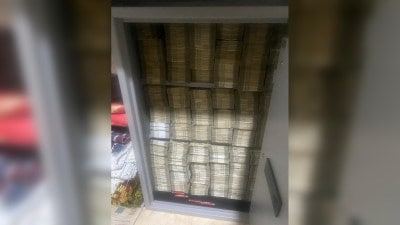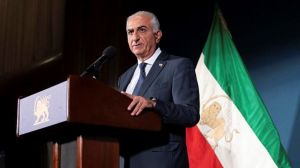Operation Psyche Out
In Afghanistan, US wanted to smoke the Taliban out. In Iraq, it8217;s trying to psyche out Saddam8217;s core commanders. In an intensified...

In Afghanistan, US wanted to smoke the Taliban out. In Iraq, it8217;s trying to psyche out Saddam8217;s core commanders. In an intensified effort to divide Saddam Hussein from his inner circle, US military and intelligence officers in recent days have communicated with some Iraqi commanders and have secretly designated buildings in the capital for defectors to occupy, promising they will not be targeted by US airstrikes. The goal is to convince top military commanders to lay down their arms.
The Republican Guards, involved in some of the talks, are Iraq8217;s best-trained and best-equipped forces. Many members are loyal to Saddam because of tribal and religious ties. The guards have been deployed around Baghdad and Tikrit, Saddam8217;s hometown.
A set of face-to-face talks was conducted between Iraqi military officers and what was described by the senior administration official as 8216;8216;assets8217;8217; run by US intelligence and special forces operating out of northern Iraq. Some of the contacts have been unit-to-unit military talks, Pentagon and White House officials said. But others are being conducted through opposition officials and diplomatic channels, according to the State Department.
Both Defence Secretary Donald H. Rumsfeld and Secretary of State Colin Powell on Friday confirmed that contacts have been established with the Iraqi military. Many of the talks have been the result of a three-month long intelligence operation of saturated communications 8212; through e-mails, radio broadcasts and leaflets 8212; that began to bear fruit when US intelligence intercepted telephone conversations among senior Iraqi officers indicating that the inner core around Saddam was starting to crumble.
The psychological warfare produced one significant defection on Friday. The Iraqi army8217;s 51st Infantry Division, 8,000 soldiers based around the major oil-shipment hub of Basra, surrendered to coalition forces. The 51st had been one of the better-equipped army divisions, with some 200 tanks.
The campaign to encourage defections within the Iraqi leadership includes activating phone trees between Iraqi commanders and relatives living outside those parts of Iraq controlled by the Saddam government who are being used as conduits for US information. The opposition Kurds in northern Iraq and certain tribal chiefs also are playing an important role in establishing contacts.
Asked how the Iraqi inner circle would surrender if it wanted to, Defence Secretary Donald H. Rumsfeld said: 8216;8216;They know precisely what to do.8217;8217; US officials said they saw on Friday night signs that Hussein and his senior ranks were unable to simultaneously maintain control over commanders, search for traitors who may have tipped off US intelligence about the President8217;s whereabouts.
The script is common. Typically, a US officer, speaking through a translator, will appeal to a counterpart8217;s pride: 8216;8216;You8217;re a professional soldier like I am. We don8217;t want to engage your forces and cause needless loss of life.8217;8217;
One administration official said the US delayed Friday8217;s airstrikes waiting for the results of one set of surrender talks.
US military and intelligence officers have also gained promises from some Iraqi commanders that they will not fire chemical weapons at American ground forces. However, US officials said they are monitoring one Republican Guard unit outside Baghdad that they believe has been issued artillery shells filled with chemical agents.
Despite the signs of disarray within the Iraqi leadership, intelligence and military officials played down the possibility of an imminent collapse or even that the US had succeeded in severing all communications between Iraqi units and their commanders.
With US and British troops possibly only days away from Baghdad, time is running out for a nearly year-long covert effort by the CIA to topple Saddam. Still, Iraq experts said they believe Saddam could face assassination from inside his ranks. The Iraqi leader8217;s normal protection devices failed him on Thursday, leading to the surprise air attack on the Presidential palace. LATWP
- 01
- 02
- 03
- 04
- 05































